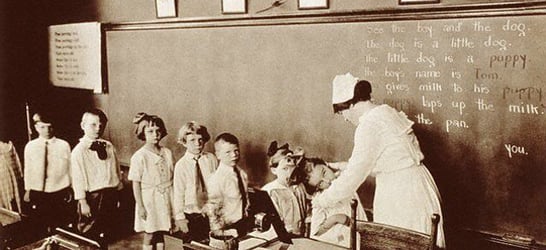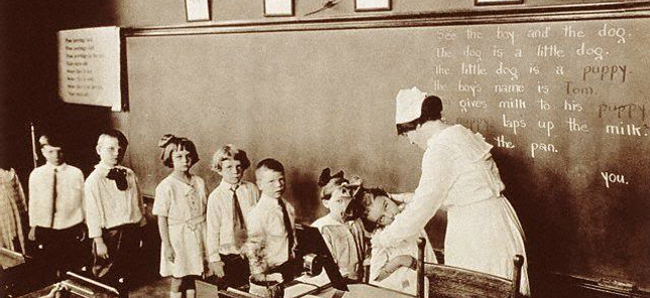 School Nurses are playing an important role in identifying students with mental health disorders. They believe by asking students the right questions they may be able to help before a tragedy occurs like suicide or a school shooting. Do you think school Nurses should be able to get better mental health training?
School Nurses are playing an important role in identifying students with mental health disorders. They believe by asking students the right questions they may be able to help before a tragedy occurs like suicide or a school shooting. Do you think school Nurses should be able to get better mental health training?Two 5-year-old girls, best friends, hold hands in her office at Van Ness Elementary School in Washington, D.C., one complaining she doesn't feel well. Tolson, the school nurse, asks, "How long has your stomach been hurting?"
It just started, but this little one says her head hurt last night, too. Tolson knows she has a history of fevers, so she checks her temperature and asks her more questions: What did she eat? Has she gone to the bathroom? Does her head still hurt?
Schools function as the mental health system for up to 80 percent of children who need help, according to the American Association of Pediatrics.
And school nurses? They play a critical role in identifying students with mental health disorders.
It could be that these two little girls that went to Patricia Tolson's office are fine. Or maybe there's something else going on. And that's what school nurses have to gauge every day.
"School nurses are the detectives in that school," says Donna Mazyck, the executive director of the National Association of School Nurses. "They're the eyes and ears of public health."
She says nurses look for patterns, "so if a student comes back with the same symptoms every single day that week, that school nurse is going to begin to connect the dots."
All of which is great if there's actually a school nurse. Some schools share nurses. Some districts have just one for all of their schools.
On top of that, school nurses generally get very little training when it comes to mental health. Mazyck says she was overwhelmed when she was a school nurse. She saw depression, trauma, anxiety, grief and "students who didn't even know what to do to calm themselves down," she says. "They didn't know how to cope."
So Mazyck went back to school for a graduate degree in counseling and now she focuses on getting nurses more training. Mental health is routinely ranked one of the top issues all school nurses deal with, and many want to be better at it.
Nurses feel like they might open a Pandora's box if they ask students certain questions about their mental health, says Sharon Stephan who co-directs the National Center for School Mental Health at the University of Maryland. Her team trains school nurses all over the country. She says that nurses can feel overwhelmed when they aren't sure if there's anyone in the community to help students outside the school.
Stephan says no one expects nurses, or even teachers for that matter, to be therapists or psychiatrists. But she tells nurses there are two simple questions to ask themselves to see if a child needs help:
Is the student acting or behaving differently than they were before?
Are they somehow far outside the norm of what you would expect?
What frustrates her is that often, the only time everyone pays attention is when there's a tragedy, like a school shooting.
The idea is "Can we catch the one student who might harm others?" or "How can we identify the one student who might be suicidal?"
But she says there are so many more kids who need help, and the first person who might notice is the school nurse.
Talking back, getting into fights and being distracted in school: "Is that just kids being kids? Or signs of a child struggling with mental health?" she says she asks herself.
Increasingly it's the school nurse's job to make that call.
Related Article: For school nurses, it’s far beyond Band-Aids
Have a question about school Nursing or have a general question you want answered? Just ask one of our Nurse Leaders!








